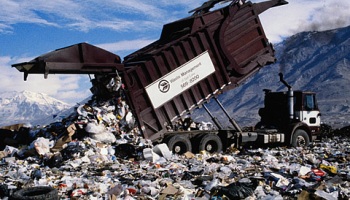Ghana Slum Faces Growing E-Waste Problem

The Ghanaian government is torn between a growing e-waste problem and the need for affordable IT equipment
Continued from page 1
Time to take responsibility?
There are a number of organisations in Ghana working to stop e-waste dumping, including Green Advocacy Ghana, Environmental Protection Agency (EPA) Ghana, the United Nations Environment Program, Accra Metropolitan Assembly, Korle Lagoon Ecological and Restoration Project.
However, given the dilemma faced by the Ghanaian government, and the fact that proper recycling facilities do not exist in the country, many believe that responsibility for tacking the problem of e-waste should be shouldered by the country that the equipment originates in.
For example, the charity Computer Aid believes that all governments need to develop systems for the safe and effective management of e-waste that are backed by legislation and based on producer responsibility. Moreover, governments in developed countries should provide stronger penalties for e-waste criminals and more resources for enforcement authorities.
“The fact that we are continuing to see e-waste from wealthy countries like the UK being dumped on countries without safe recycling facilities, highlights gaps in existing legislation and its enforcement that desperately need to be filled,” said Computer Aid’s Environmental Advocacy Officer, Haley Bowcock.
 Earlier this year, the Council of the European Union determined its first-reading position on an update to the Waste Electrical and Electronic Equipment (WEEE) directive, obliging member states to annually collect 45 percent of the average weight of electrical and electronic equipment placed in their national markets.
Earlier this year, the Council of the European Union determined its first-reading position on an update to the Waste Electrical and Electronic Equipment (WEEE) directive, obliging member states to annually collect 45 percent of the average weight of electrical and electronic equipment placed in their national markets.
However, 45 percent is substantially lower than the 85 percent target approved by the European Parliament in February, inducing criticism from Computer Aid for the Council’s “softly-softly” approach.
“With only one third of e-waste collected in the EU being treated according to the requirements of legislation, it is clear the bold changes to the WEEE Directive are necessary to mitigate the environmental and health risks posed by e-waste,” said Bowcock. “We hope that negotiations between the Council and the European Parliament later this year yield a Directive that is as bold in ambition as the exploding e-waste problem is serious.”
Is legislation the answer?
But not everyone believes that legislation is the solution to the e-waste problem. According to Bob Clarke, chief executive of e-waste management company WEEE Systems, progress will rely on a change of business culture.
“Many of the biggest players stumbled across the e-waste opportunity and treat it as a windfall rather than strategic gain for their business,” Clarke told eWEEK Europe. “Legislation helps but is always running to play catch-up, and provides a thieves charter for businesses who seek to subvert it.
“Ghana, and other countries like it are the victims of this approach when the music finally stops – but to blame their situation on a few unscrupulous recyclers is to miss the point entirely,” he added “It is the OEMs and retailers – B2B and B2C –who profit from the original sale of goods, and they must impose their own standards on the e-waste sector, with the threat of withdrawal of their business in favour of self administered solutions if the industry does not play ball.”
Clarke said that these global players have a direct interest in building bridges with consumers in developing countries, which are being scarred by e-waste opportunism. They should see e-waste best practice as a customer acquisition strategy, he said, and therefore employ the same vigour in dealing with these issues that they would do in pursuing new customers by other means.
“Time is running out for e-waste to be mis-represented, subverted, stolen and generally ‘wasted’ by middleman malpractice,” he said. “It’s too valuable a source of precious raw materials to be squandered by global players, or flipped to the corporate equivalent of the Sopranos by its own people for short-term gain.”